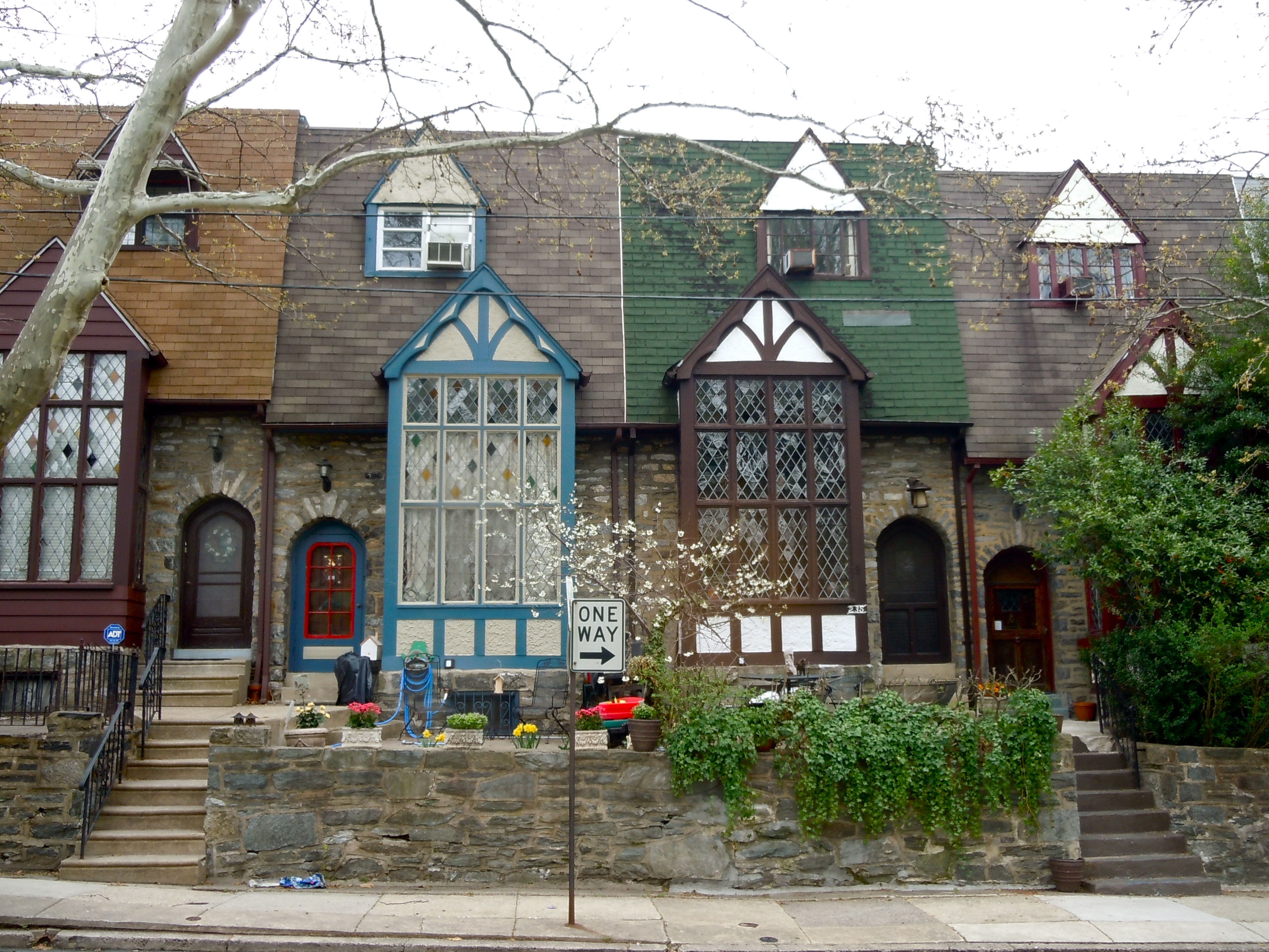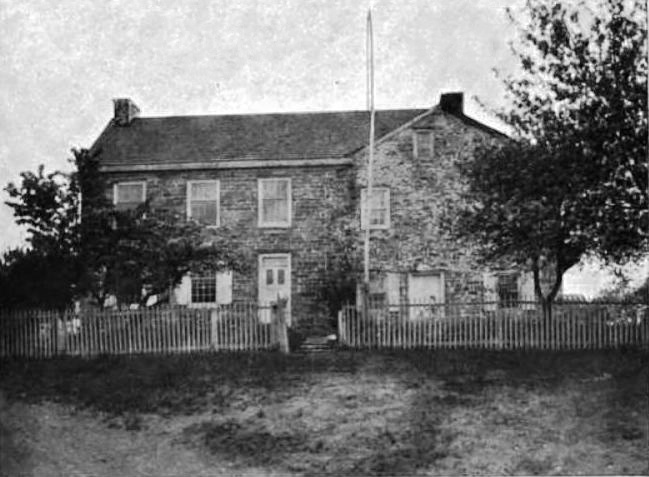|
John Sellers (scientist)
John Sellers (1728 – 1804), was an American scientist, engineer, and legislator, who was born at Sellers Hall in Upper Darby, Pennsylvania, on November 19, 1728. Sellers was one of the original members of the American Philosophical Society and with David Rittenhouse and others was one of the committee of that organization that observed the Transit of Venus in 1769 and reported their observations for the benefit of science. He was a skilled surveyor and engineer and played a part on numerous public works, including the construction of the Strasburg road in 1772, the Schuylkill-Susquehanna canal study of 1783, and the boundary commission for the newly created Delaware County in 1789. Public spirited and capable, Sellers played an important role in political affairs throughout his life, first in the colonial Assembly from 1767, and then in efforts on behalf of American rights and eventually Independence. He was appointed one of the Boston Port Bill Committee and was a deputy in the ... [...More Info...] [...Related Items...] OR: [Wikipedia] [Google] [Baidu] |
Sellers Hall
Sellers Hall, completed in 1684, is one of the oldest buildings in Pennsylvania and is the ancestral home of the Sellers Family of Scientists, Sellers family of scientists and engineers. Samuel Sellers (1655-1732) arrived in Philadelphia in 1682, the first year of Penn's colony. A young man, he was eager to marry, which explains the very early date of the house. He married Anna Gibbons (1655-1743) on August 13, 1684, and moved into Sellers Hall. The Sellers' declaration of intention to marry is the first entry in the minutes of Darby meeting. Samuel Sellers brought with him from Derbyshire in England the technology for making and weaving wire. This technology, and his mills on Cobbs Creek in Upper Darby, became the basis for a series of inventions and mechanical innovations that would lead to the creation of the early Pennsylvania textile industry at Cardington, the North American paper-making industry, and the fire-hose, fire-engine, and locomotive-making industries in Pennsylva ... [...More Info...] [...Related Items...] OR: [Wikipedia] [Google] [Baidu] |
Upper Darby
Upper Darby Township, often shortened to Upper Darby, is a home rule township in Delaware County, Pennsylvania. The township borders Philadelphia, the nation's sixth most populous city as of 2020 with 1.6 million residents. As of the 2020 census, the township had a total population of 85,681, making it the sixth most populated city or borough in Pennsylvania, after Philadelphia, Pittsburgh, Allentown, Reading, and Erie. Upper Darby is 65% residential, 25% commercial, and 8% other. Upper Darby is home to the Tower Theater, a historic music venue on 69th Street built in the 1920s, and is also home to several Underground Railroad sites. Upper Darby's population is diverse, representing over 100 ethnic cultures. The township hosts a range of housing types including densely populated rowhouse sections similar to houses in neighboring West Philadelphia, tree-lined neighborhoods of turn-of-the-century single-family houses and mid-century developments. Because of a home-rule char ... [...More Info...] [...Related Items...] OR: [Wikipedia] [Google] [Baidu] |
American Philosophical Society
The American Philosophical Society (APS), founded in 1743 in Philadelphia, is a scholarly organization that promotes knowledge in the sciences and humanities through research, professional meetings, publications, library resources, and community outreach. Considered the first learned society in the United States, it has about 1,000 elected members, and by April 2020 had had only 5,710 members since its creation. Through research grants, published journals, the American Philosophical Society Museum, an extensive library, and regular meetings, the society supports a variety of disciplines in the humanities and the sciences. Philosophical Hall, now a museum, is just east of Independence Hall in Independence National Historical Park; it was designated a National Historic Landmark in 1965. History The Philosophical Society, as it was originally called, was founded in 1743 by Benjamin Franklin, James Alexander (lawyer), James Alexander, Francis Hopkinson, John Bartram, Philip Syn ... [...More Info...] [...Related Items...] OR: [Wikipedia] [Google] [Baidu] |
David Rittenhouse
David Rittenhouse (April 8, 1732 – June 26, 1796) was an American astronomer, inventor, clockmaker, mathematician, surveyor, scientific instrument craftsman, and public official. Rittenhouse was a member of the American Philosophical Society and the first director of the United States Mint. Biography David Rittenhouse was born on April 8, 1732, in Roxborough Township, Philadelphia County, near a small village within Philadelphia called Rittenhousetown. This village is located near Germantown, along the stream Paper Mill Run, which is a tiny tributary of the Wissahickon Creek. When his uncle, William Rittenhouse, died, David inherited his uncle's carpentry tools and instructional books. At a young age, David showed a high level of intelligence by creating a working scale model of his great-grandfather William Rittenhouse's paper mill. He built other scale models in his youth, like a working waterwheel. David never attended elementary school—he was self-taught from his f ... [...More Info...] [...Related Items...] OR: [Wikipedia] [Google] [Baidu] |
Transit Of Venus
frameless, upright=0.5 A transit of Venus across the Sun takes place when the planet Venus passes directly between the Sun and a superior planet, becoming visible against (and hence obscuring a small portion of) the solar disk. During a transit, Venus can be seen from Earth as a small black dot moving across the face of the Sun. The duration of such transits is usually several hours (the transit of 2012 lasted 6 hours and 40 minutes). A transit is similar to a solar eclipse by the Moon. While the diameter of Venus is more than three times that of the Moon, Venus appears smaller, and travels more slowly across the face of the Sun, because it is much farther away from Earth. Transits of Venus are among the rarest of predictable astronomical phenomena. They occur in a pattern that generally repeats every 243 years, with pairs of transits eight years apart separated by long gaps of 121.5 years and 105.5 years. The periodicity is a reflection of the fact that the orbital periods ... [...More Info...] [...Related Items...] OR: [Wikipedia] [Google] [Baidu] |
18th-century American Scientists
The 18th century lasted from January 1, 1701 (Roman numerals, MDCCI) to December 31, 1800 (Roman numerals, MDCCC). During the 18th century, elements of Age of Enlightenment, Enlightenment thinking culminated in the American Revolution, American, French Revolution, French, and Haitian Revolution, Haitian Revolutions. During the century, History of slavery, slave trading and human trafficking expanded across the shores of the Atlantic Ocean, Atlantic, while declining in Russian Empire, Russia, Qing dynasty, China, and Joseon, Korea. Revolutions began to challenge the legitimacy of monarchical and aristocratic power structures, including the structures and beliefs that Proslavery, supported slavery. The Industrial Revolution began during mid-century, leading to radical changes in Society, human society and the Natural environment, environment. Western historians have occasionally defined the 18th century otherwise for the purposes of their work. For example, the "short" 18th cen ... [...More Info...] [...Related Items...] OR: [Wikipedia] [Google] [Baidu] |
18th-century American Politicians
The 18th century lasted from January 1, 1701 ( MDCCI) to December 31, 1800 ( MDCCC). During the 18th century, elements of Enlightenment thinking culminated in the American, French, and Haitian Revolutions. During the century, slave trading and human trafficking expanded across the shores of the Atlantic, while declining in Russia, China, and Korea. Revolutions began to challenge the legitimacy of monarchical and aristocratic power structures, including the structures and beliefs that supported slavery. The Industrial Revolution began during mid-century, leading to radical changes in human society and the environment. Western historians have occasionally defined the 18th century otherwise for the purposes of their work. For example, the "short" 18th century may be defined as 1715–1789, denoting the period of time between the death of Louis XIV of France and the start of the French Revolution, with an emphasis on directly interconnected events. To historians who expand ... [...More Info...] [...Related Items...] OR: [Wikipedia] [Google] [Baidu] |
18th-century American Engineers
The 18th century lasted from January 1, 1701 ( MDCCI) to December 31, 1800 ( MDCCC). During the 18th century, elements of Enlightenment thinking culminated in the American, French, and Haitian Revolutions. During the century, slave trading and human trafficking expanded across the shores of the Atlantic, while declining in Russia, China, and Korea. Revolutions began to challenge the legitimacy of monarchical and aristocratic power structures, including the structures and beliefs that supported slavery. The Industrial Revolution began during mid-century, leading to radical changes in human society and the environment. Western historians have occasionally defined the 18th century otherwise for the purposes of their work. For example, the "short" 18th century may be defined as 1715–1789, denoting the period of time between the death of Louis XIV of France and the start of the French Revolution, with an emphasis on directly interconnected events. To historians who expand ... [...More Info...] [...Related Items...] OR: [Wikipedia] [Google] [Baidu] |
1728 Births
Seventeen or 17 may refer to: *17 (number), the natural number following 16 and preceding 18 * one of the years 17 BC, AD 17, 1917, 2017 Literature Magazines * ''Seventeen'' (American magazine), an American magazine * ''Seventeen'' (Japanese magazine), a Japanese magazine Novels * ''Seventeen'' (Tarkington novel), a 1916 novel by Booth Tarkington *''Seventeen'' (''Sebuntiin''), a 1961 novel by Kenzaburō Ōe * ''Seventeen'' (Serafin novel), a 2004 novel by Shan Serafin Stage and screen Film * ''Seventeen'' (1916 film), an American silent comedy film *''Number Seventeen'', a 1932 film directed by Alfred Hitchcock * ''Seventeen'' (1940 film), an American comedy film *''Eric Soya's '17''' (Danish: ''Sytten''), a 1965 Danish comedy film * ''Seventeen'' (1985 film), a documentary film * ''17 Again'' (film), a 2009 film whose working title was ''17'' * ''Seventeen'' (2019 film), a Spanish drama film Television * ''Seventeen'' (TV drama), a 1994 UK dramatic short starring Christi ... [...More Info...] [...Related Items...] OR: [Wikipedia] [Google] [Baidu] |






